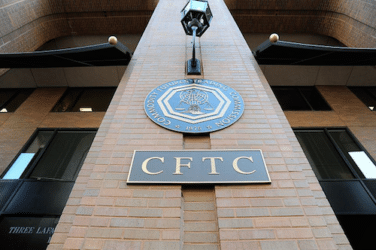(this article originally appeared on Bloomberg)
J. Christopher Giancarlo, a Republican member of the Commodity Futures Trading Commission who has close ties to the derivatives industry, is a leading candidate to head the regulator in the Trump administration, according to people familiar with the matter.
If appointed, Giancarlo, who has been an outspoken critic of some of the commission’s regulatory efforts, would be able to set the agency’s agenda. He most recently voted against a proposal that would give the regulator easier access to high frequency traders’ secret algorithms.
While current CFTC Chairman Timothy Massad said last week that he plans to stay in the role through April when his term ends, Donald Trump’s surprise victory makes it more likely the Democratic appointee will leave once the new administration begins in January. In that case, Giancarlo, who’s the only Republican on the commission, would likely become acting chairman of the agency until he, or another pick, is confirmed by the Senate.
It’s not clear when the president-elect, who just began ramping up transition efforts, would name someone for the CFTC chief slot. It isn’t considered a front-line job and hasn’t traditionally been an immediate priority. Other candidates could arise, and potentially also complicating matters are two other vacancies on the five-member commission that need to be filled.
Position Limits
Still, Giancarlo, who worked at a swaps brokerage before joining the agency in 2014, may have an edge. The 57-year-old is friendly with Paul Atkins, who’s leading transition efforts for independent financial agencies. The men overlapped at Vanderbilt Law School in the 1980s.
A representative for Giancarlo declined to comment, as did Steven Adamske, a spokesman for the CFTC. Trump’s transition team didn’t respond to an e-mailed request for comment.
On position limits, Giancarlo had been a critic of the agency’s earlier plan, calling it “highly inadequate” and “based on an incomplete understanding, faulty analysis and a mistrust of market forces and innovation” during a speech last year. He added: “In business, anyone who championed a rule with so many predictably bad outcomes would be looking for a new job.”
GFI Shares
Giancarlo frequently cites his industry experience as informing his approach to regulation. In a speech before the American Enterprise Institute in September, for example, he said his work as an executive taught him that “unbalanced regulation is a major contributor to America’s economic doldrums.”
Yet his resume has at times presented some thorny government ethics questions. Massachusetts Senator Elizabeth Warren last year raised concerns about the timing of some of Giancarlo’s stock sales when he joined the commission, saying they had “the potential for broad conflicts of interest.”
The shares were part of his severance package from brokerage firm GFI Group Inc., a company regulated by the CFTC. At the time Giancarlo was divesting his stake, the company became a takeover target, which caused its stock price to double. GFI reached its high for the year on the last day Giancarlo unloaded his shares in September 2014.
Giancarlo had been in charge of shareholder relations and mergers and acquisitions at the company. He told Warren that while his stock was sold under an automatic trading plan created before his confirmation, he was forced to depart from the arrangement because of an error in how it was set up. “I did everything right,” Giancarlo said at the time.
He later told Warren that he would recuse himself from matters involving both GFI and the rival company that bought it.






